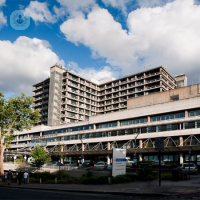Electrolyte disorders
Professor Jeremy Levy - Nephrology
Created on: 02-25-2021
Updated on: 03-23-2023
Edited by: Karolyn Judge
What are electrolyte disorders?
An electrolyte disorder means that the level of one or more electrolyte in the body is imbalanced – it’s too high or too low. An electrolyte disorder is not a condition itself, but rather a sign that there is another issue within the body.
We need electrolytes to ensure that numerous bodily functions work correctly: electrolytes impact our cells, our organs and the systems within our body.
There are several electrolyte disorders, each relating to the affected electrolyte and whether it’s too low or too high. Note that the following imbalances begin with either hyper (high) or hypo (low).
- Calcium (hypercalcemia and hypocalcemia)
- Chloride hyperchloremia and hypochloremia
- Magnesium (hypermagnesemia and hypomagnesemia)
- Phosphate (hyperphosphatemia or hypophosphatemia)
- Potassium (hyperkalemia and hypokalemia)
- Sodium (hypernatremia and hyponatremia)

Prognosis of electrolyte disorders
In most cases, treating the electrolyte imbalance by restoring appropriate electrolyte levels and treating the cause of the imbalance allow patients to make a full recovery.
Symptoms of electrolyte disorders
Numerous symptoms can suggest an electrolyte disorder:
- Arrhythmia (a heart rhythm that’s irregular and/or quicker than usual);
- Feeling fatigued and lethargic;
- Nausea;
- Vomiting;
- Feelings of irritation and confusion;
- Headaches;
- Seizures;
- Abnormal bowel habits (constipation or diarrhoea);
- Abdominal cramps;
- Muscle cramps;
- Muscle weakness;
- Numbness and tingling.
If left untreated, electrolyte disorders have the potential to become life-threatening. Seek medical help immediately if you think you may have an electrolyte disorder.
Medical tests to diagnose electrolyte disorders
To diagnose an electrolyte disorder, a doctor will likely perform a group of specific blood tests (often referred to as an electrolyte panel) to screen the blood for imbalances. They may also perform a physical examination and/or other tests to confirm the electrolyte disorder diagnosis.
What are the causes of electrolyte disorders?
The cause of electrolyte disorders often varies and depends on the affected electrolyte.
- The imbalance of electrolytes is often caused by a loss of bodily fluids (e.g. excessive diarrhoea, sweating or vomiting).
- In some cases, a medical condition (e.g. kidney disease, type 1 diabetes or a respiratory problem) is the cause.
- Sometimes, medications (e.g. steroids, laxatives and diuretics) can cause electrolyte disorders.
Can electrolyte disorders be prevented?
To minimise the chance of an electrolyte imbalance, consume foods and drinks that are rich in electrolytes, especially after excessive sweating, vomiting or diarrhoea. This includes fruits and vegetables, dairy, nuts and seeds, as well as beans and lentils.
Supplements can also be an option for replenishing some electrolytes, but take note that consuming supplements that are rich in an electrolytes may cause issues if taken incorrectly and too often.
Treatments for electrolyte disorders
Once diagnosed, your treatment plan will depend on which electrolyte disorder you have and its cause.
Your treatment may consist of:
- Oral medications and supplements to replenish low electrolyte levels;
- Intravenous (IV) fluids to rehydrate your body
- IV medications
- Haemodialysis
- Dietary advice to lower or increase your intake of a specific electrolyte
Which type of specialist treats electrolyte disorders?
A nephrologist is a specialist who diagnoses and manages electrolyte disorders.



